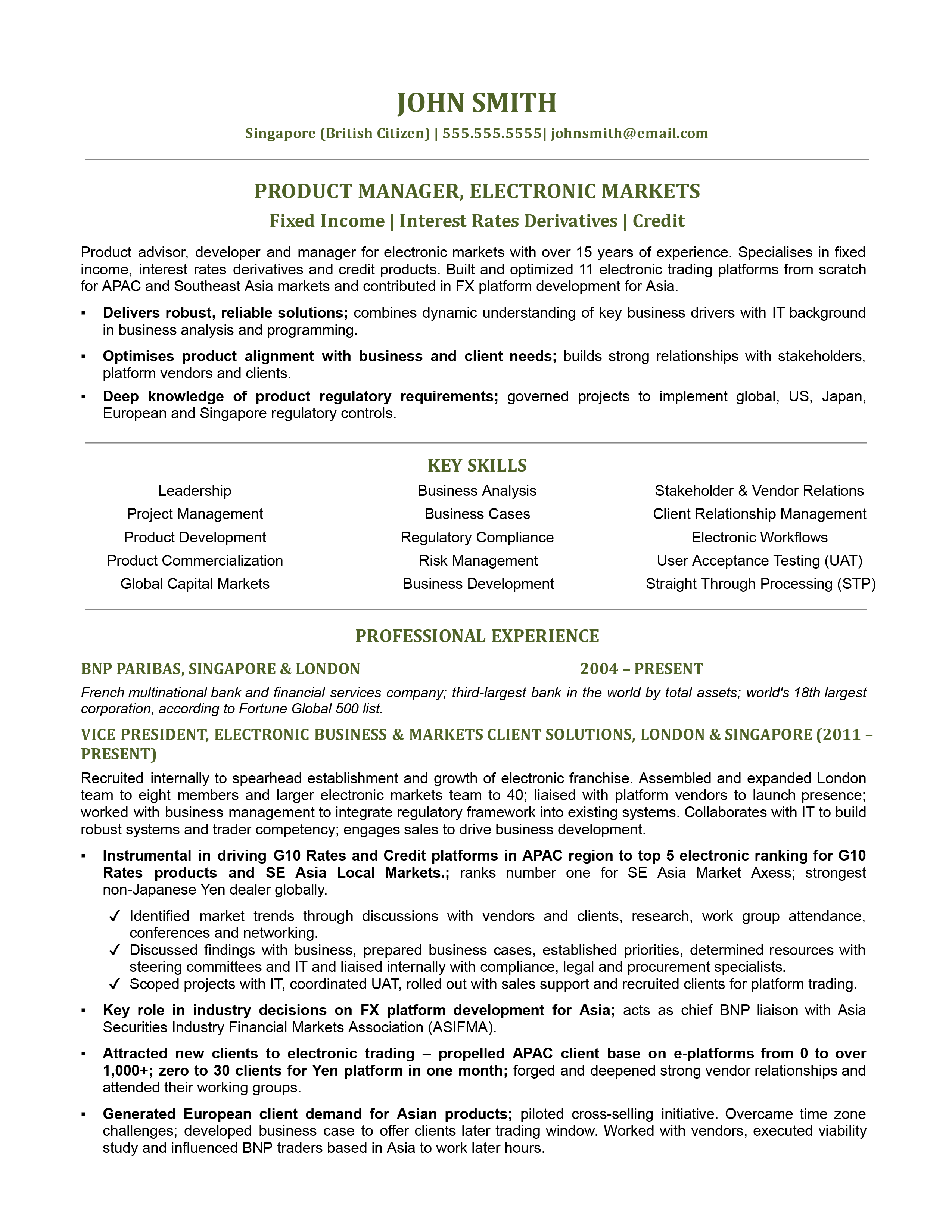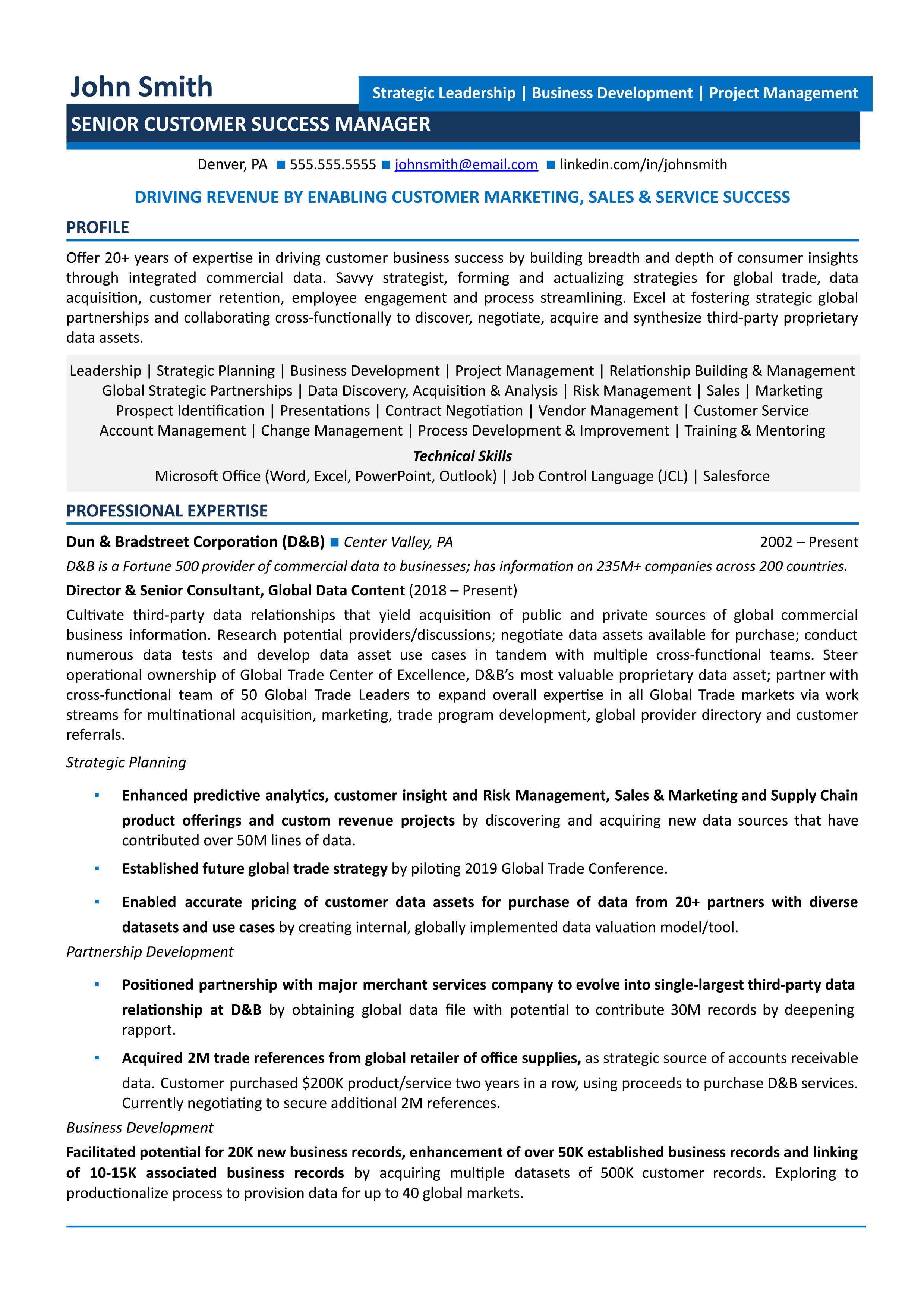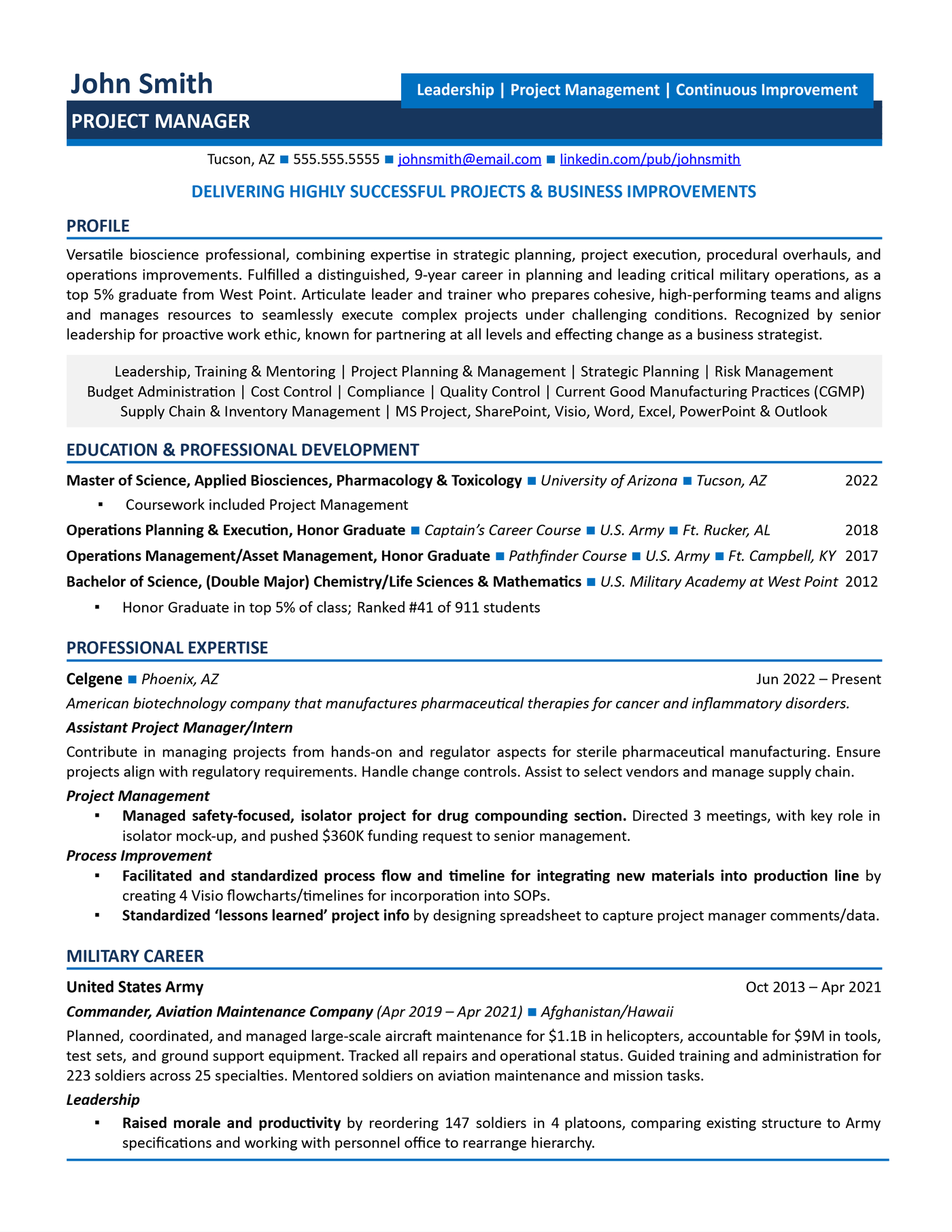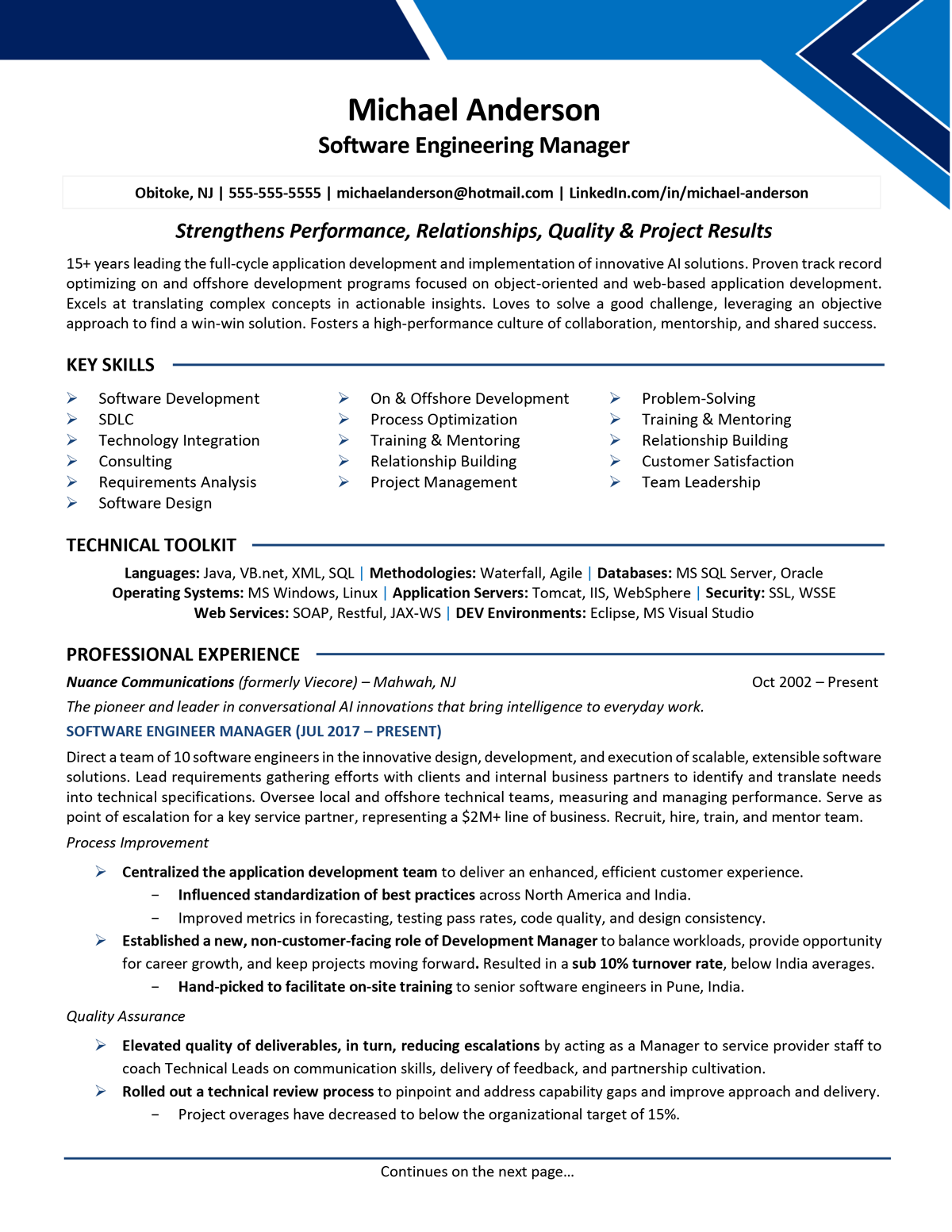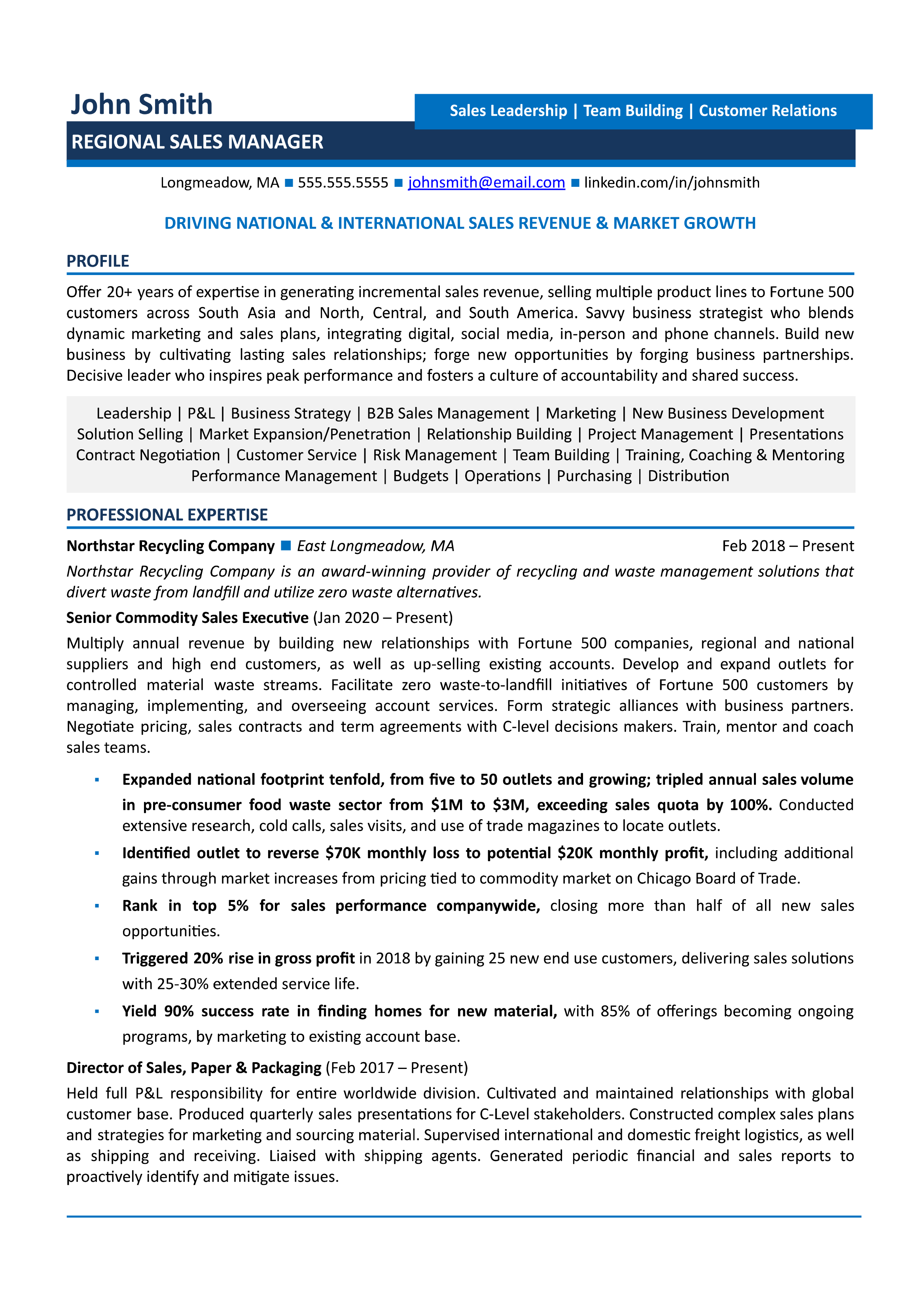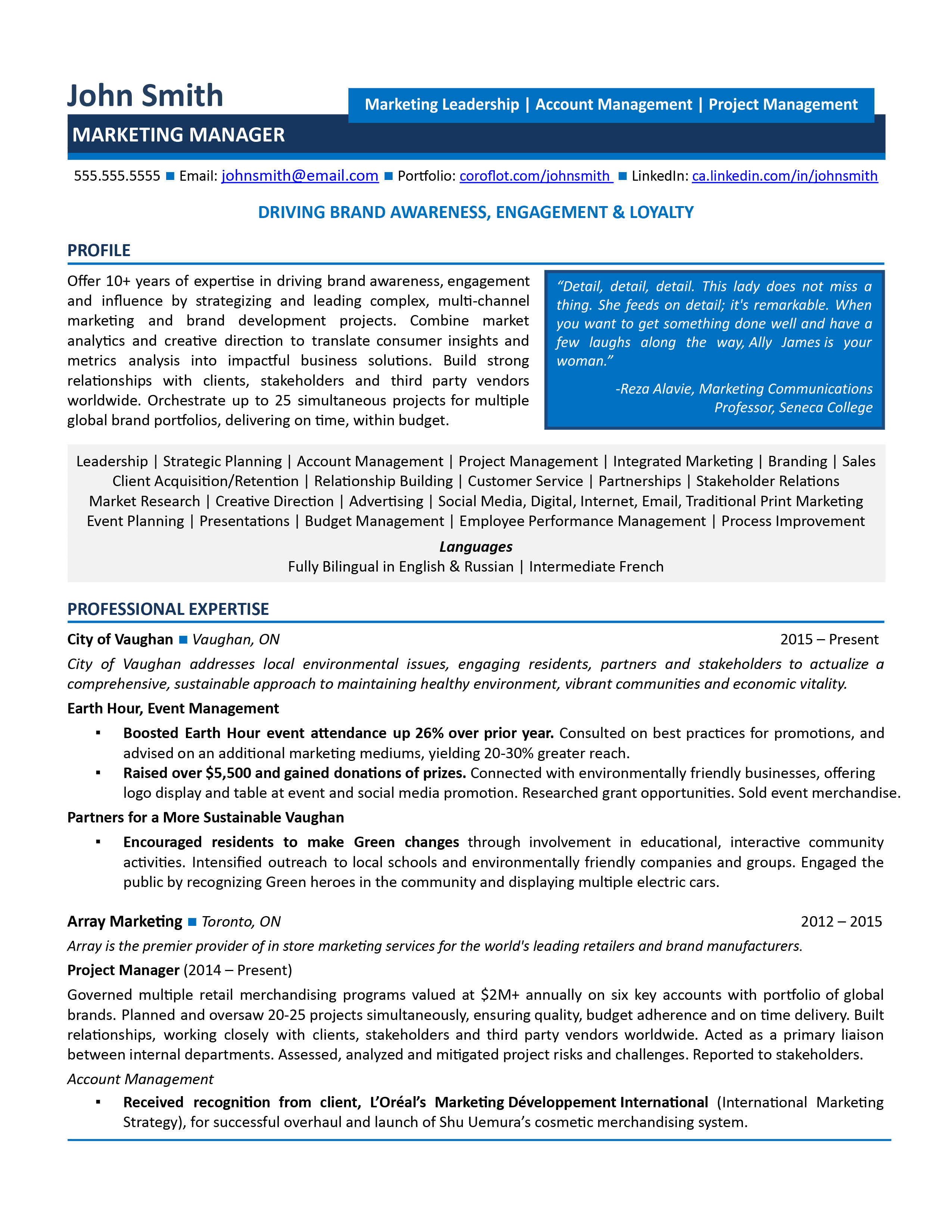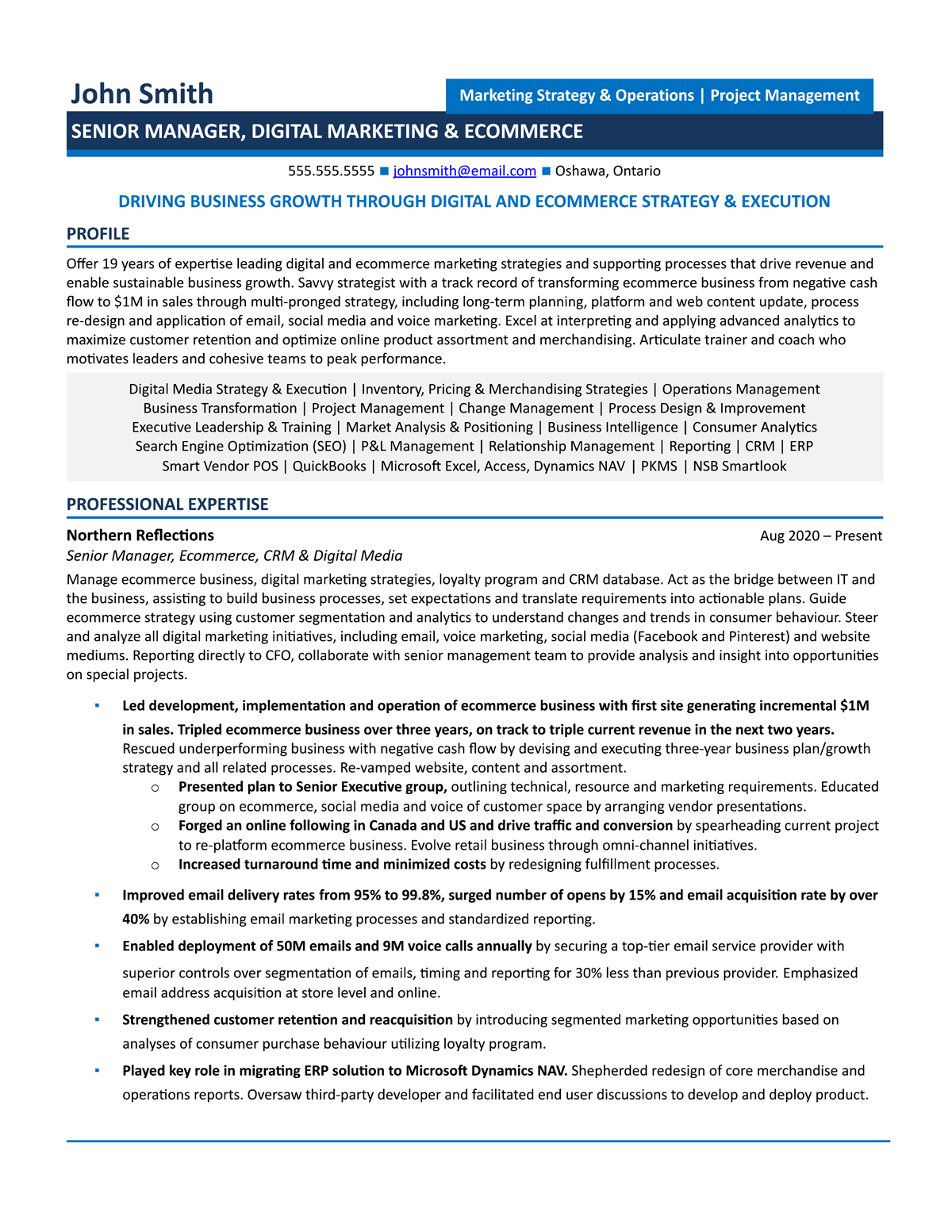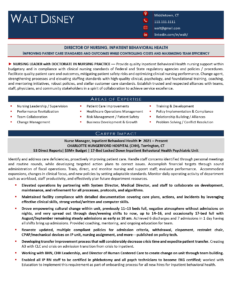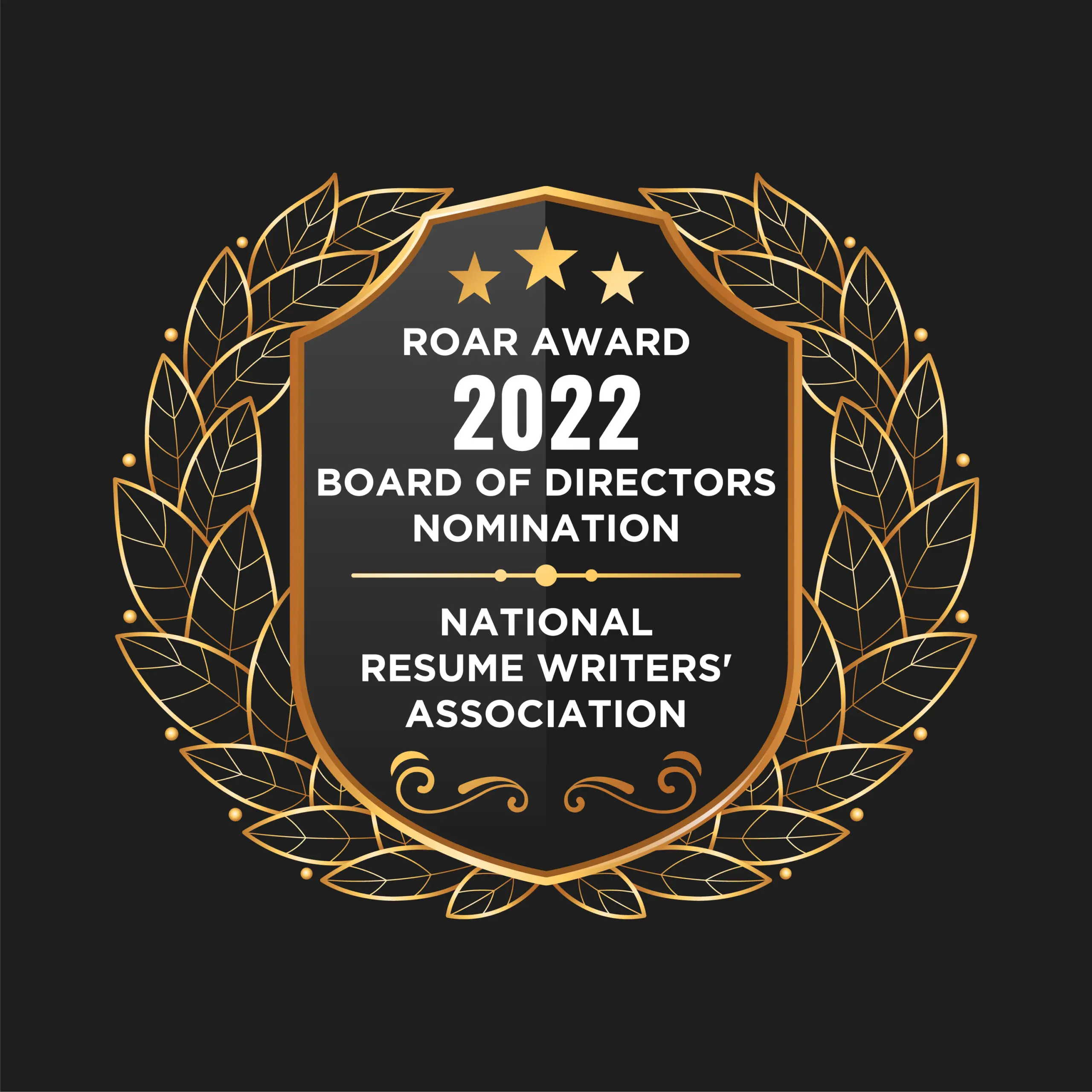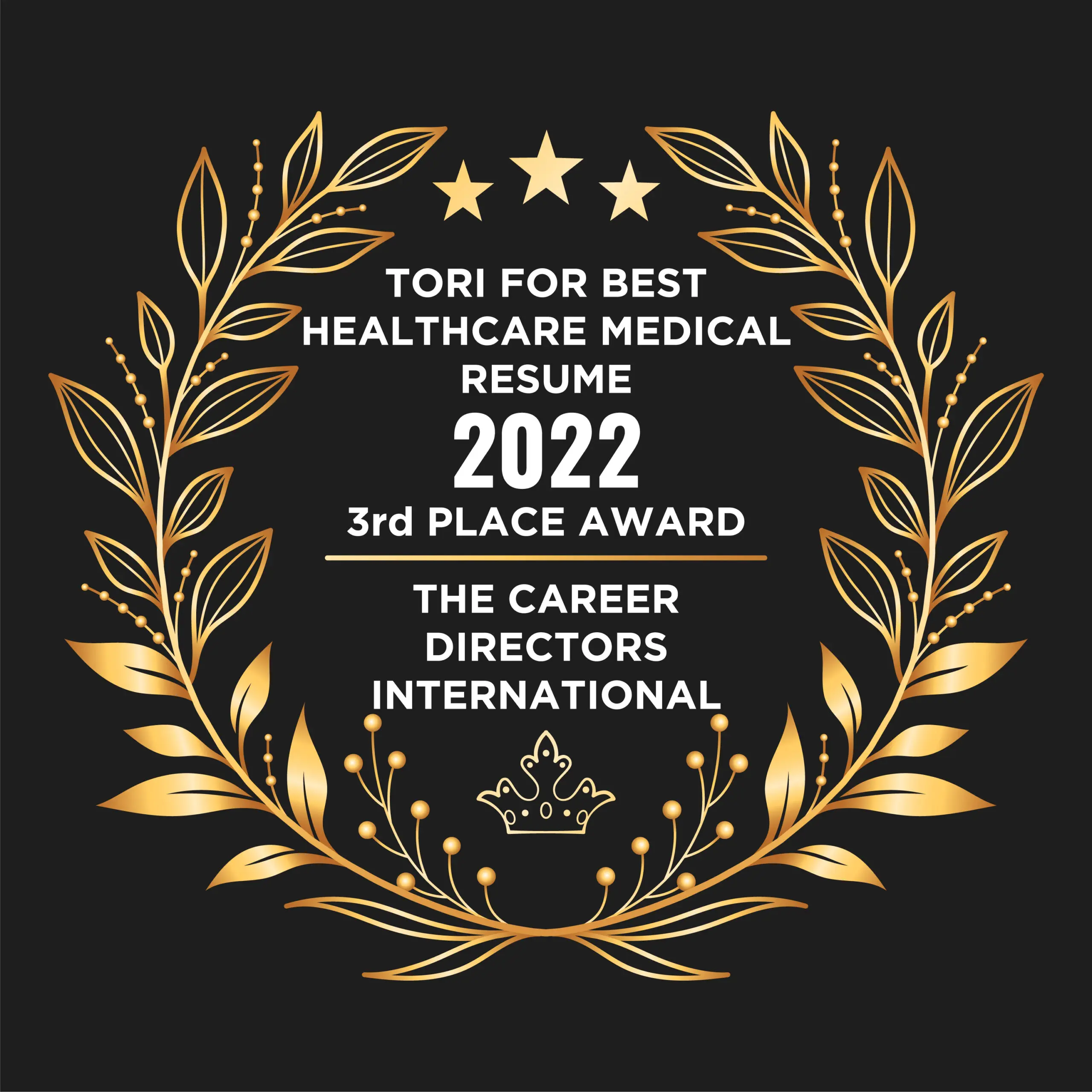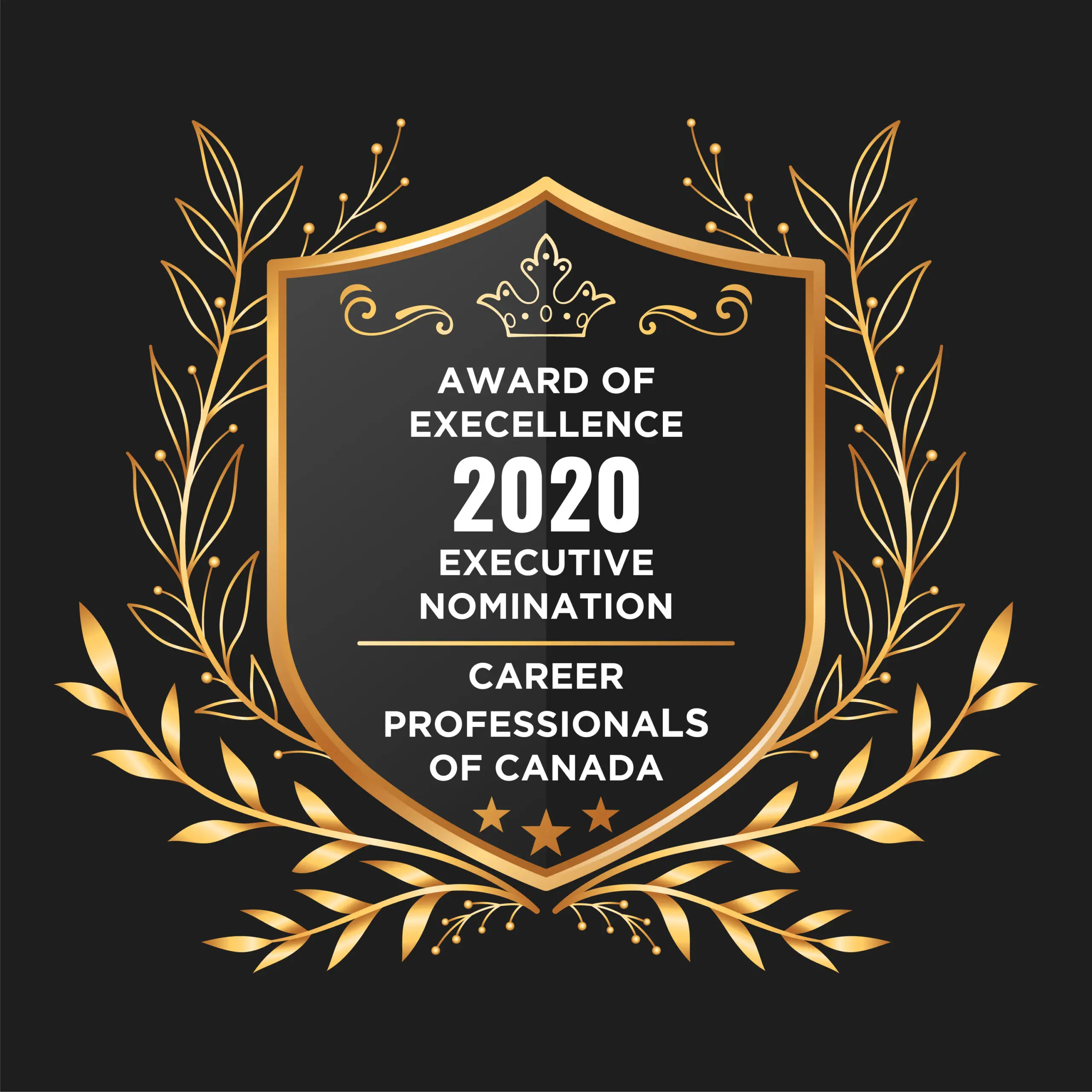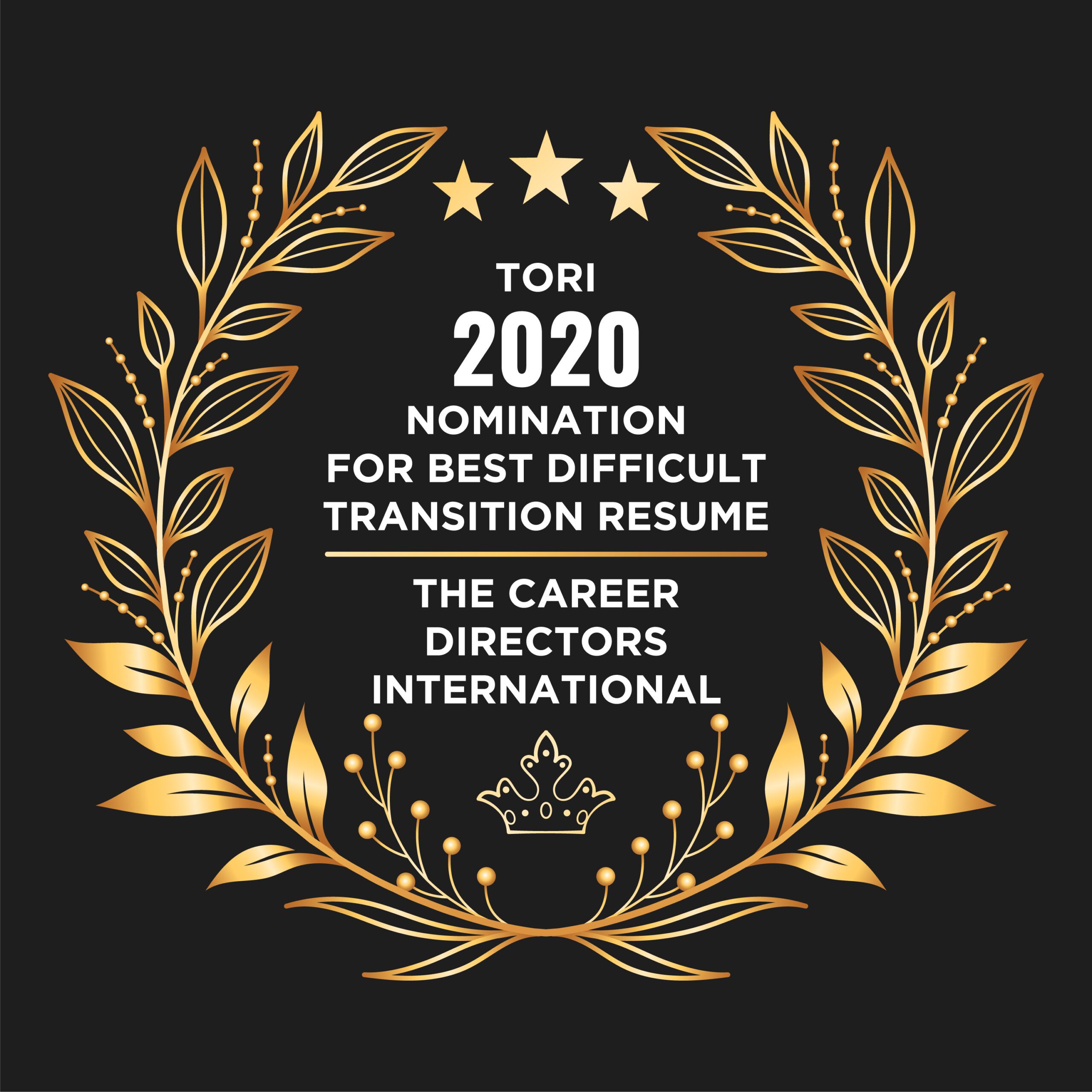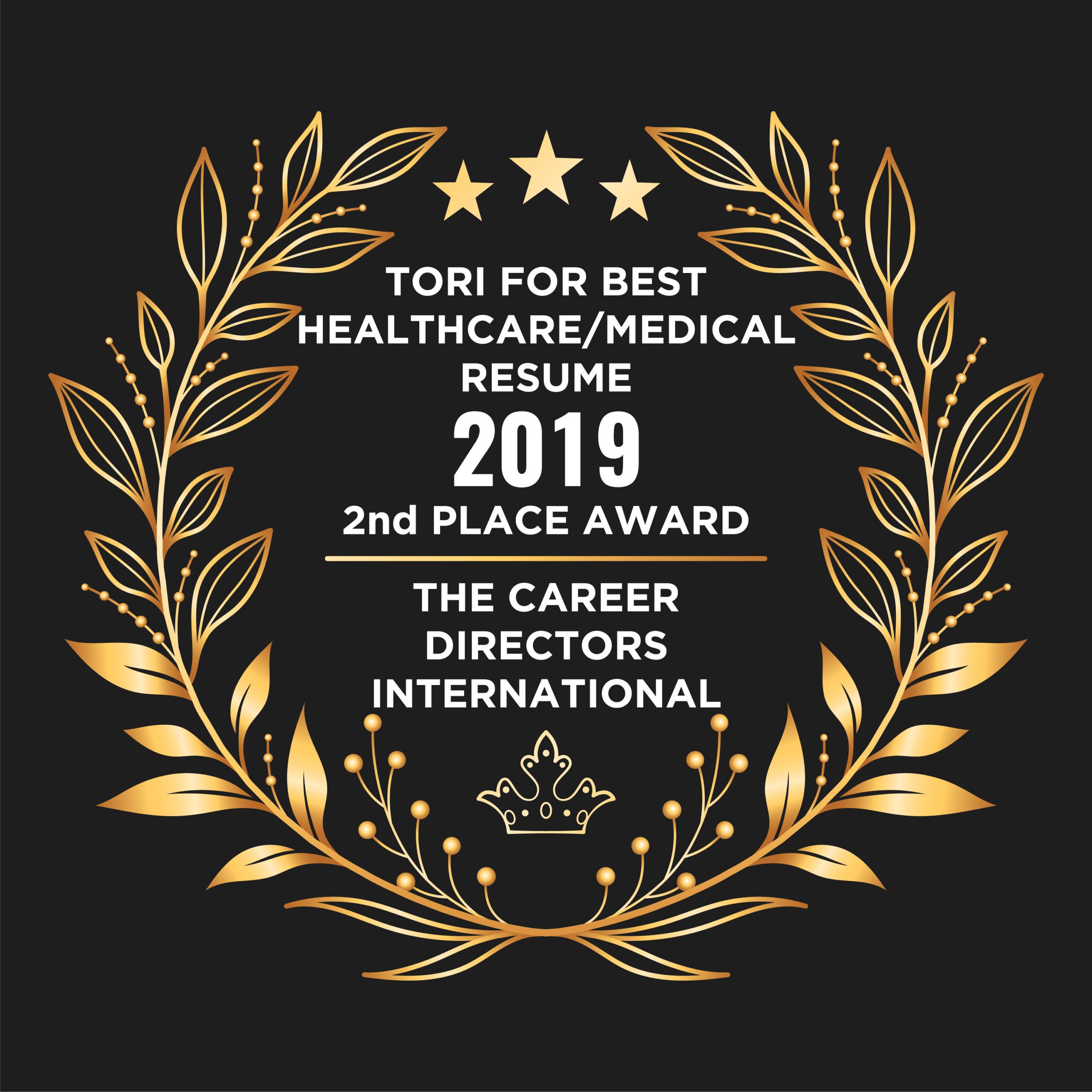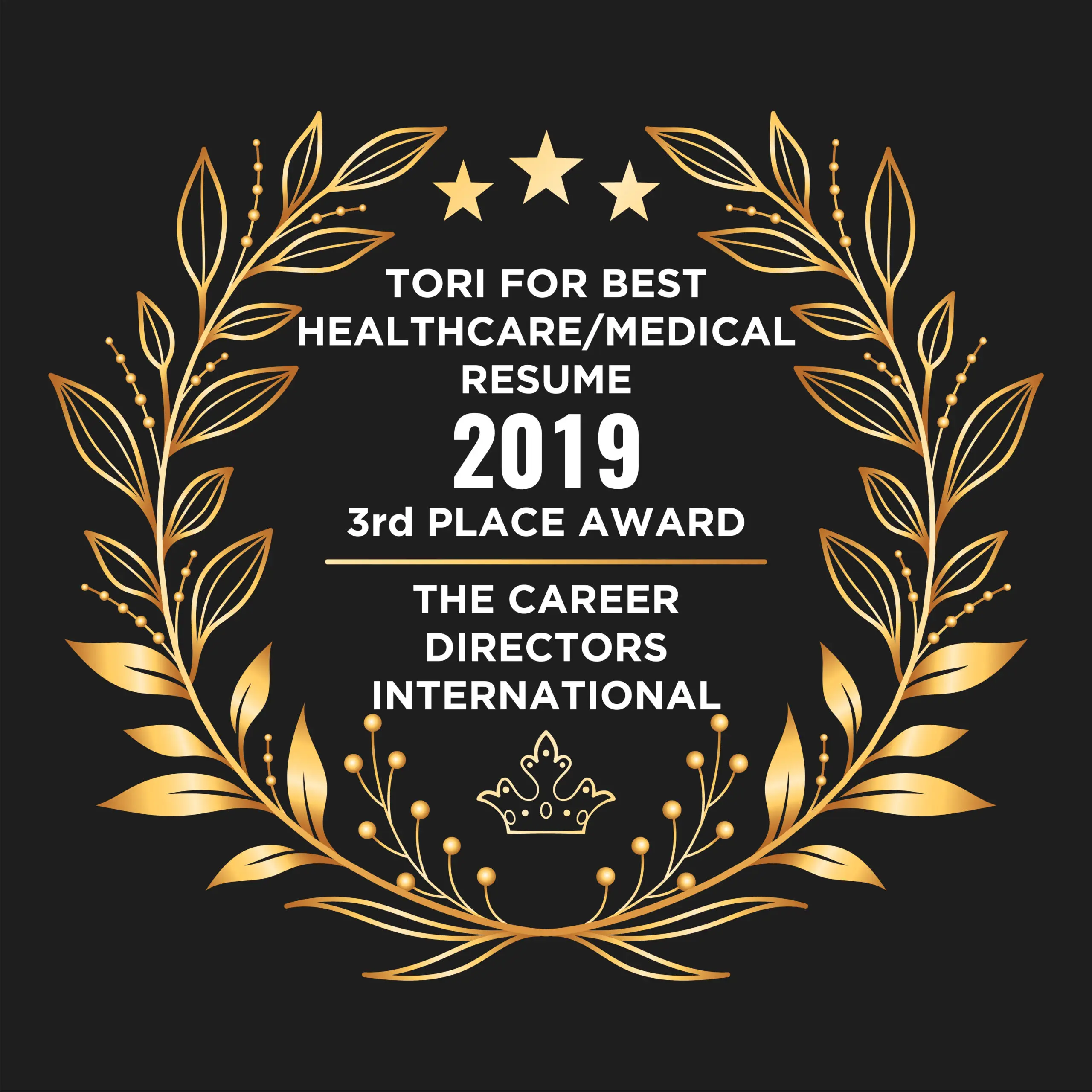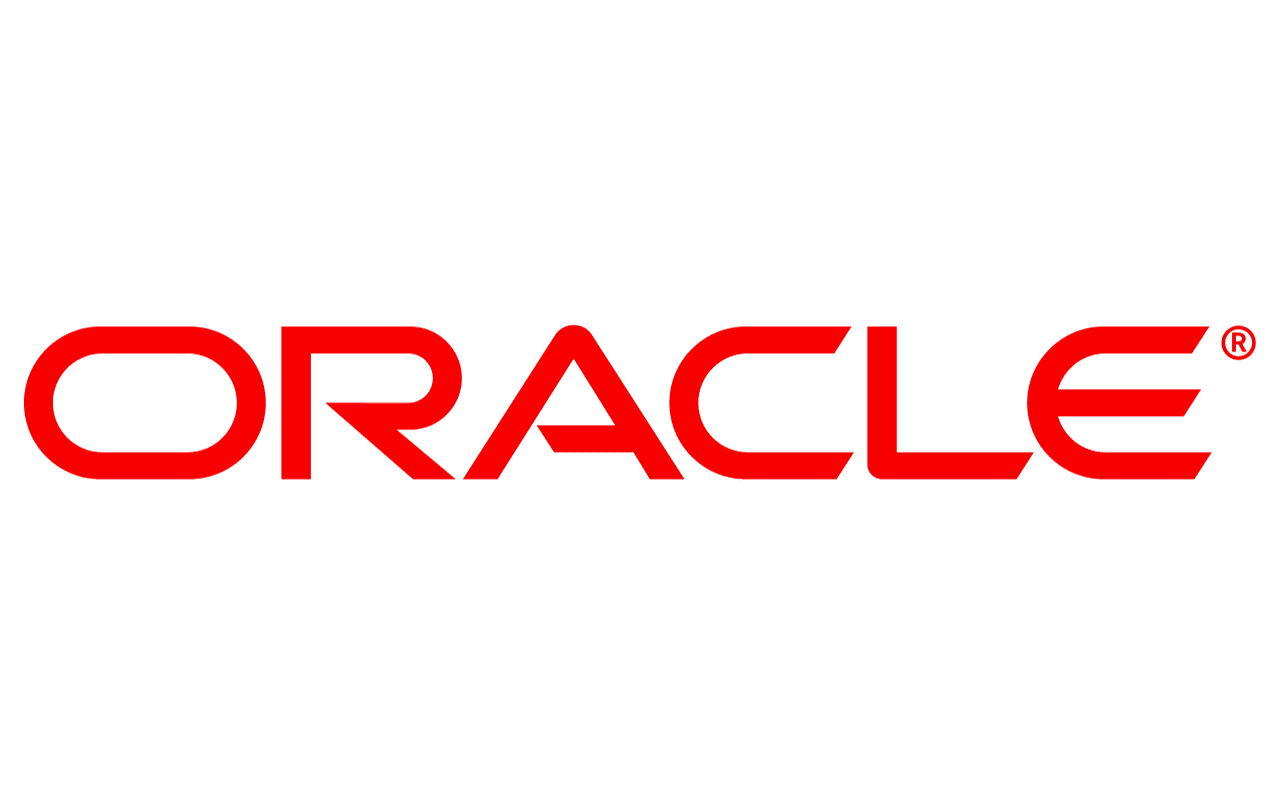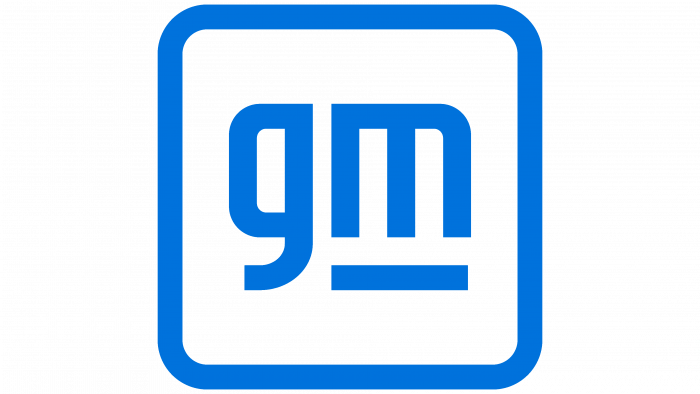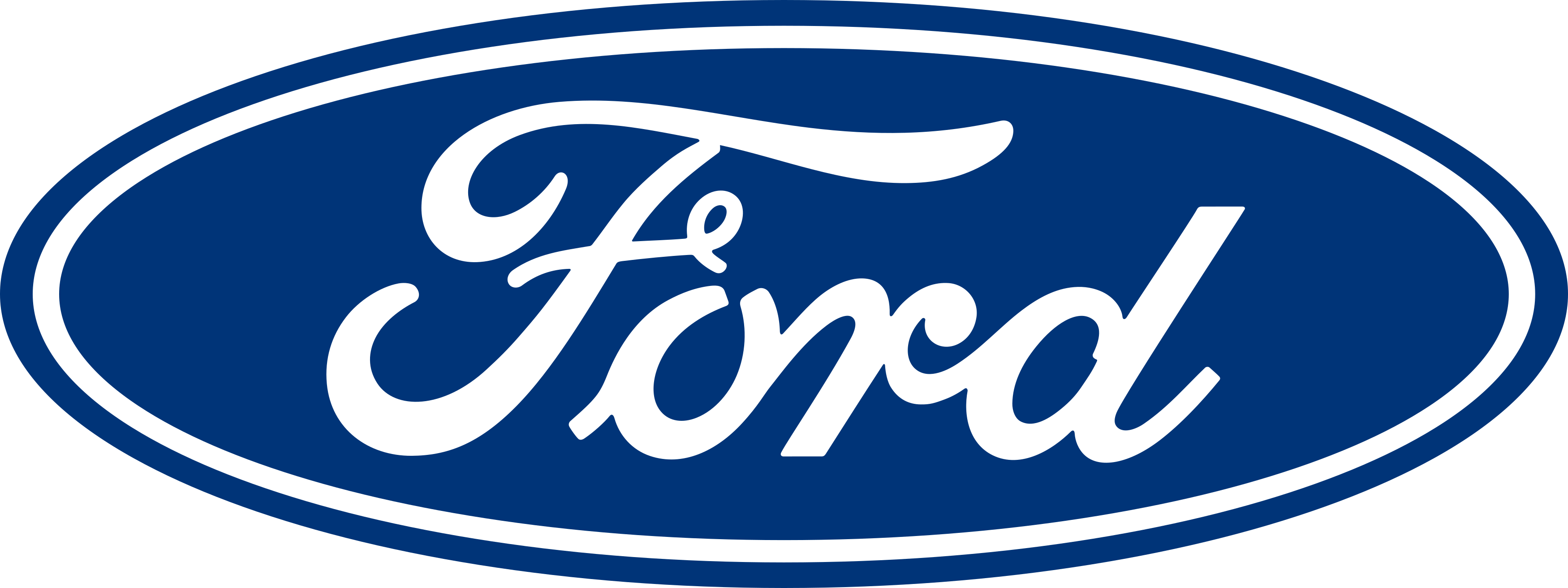Customer Success Manager Resume
Software Engineering Manager Resume
Regional Sales Manager Resume
Digital Marketing Manager Resume
Product Marketing Manager Resume
How to write a Manager Resume
1. Start with a Strong Resume Summary
First impressions matter, so kick off your manager resume with a powerful summary statement. This brief paragraph should highlight your most relevant experience, key accomplishments, and the value you can bring to the role. Tailor your summary to the specific job you’re applying for, emphasizing your unique qualifications and potential contributions.

Here’s a step-by-step guide to writing an effective manager resume summary:
| Step | Description | Example |
|---|---|---|
| 1. Begin with a strong statement | Use strong adjectives such as "dynamic," "results-driven," or "proven" to describe yourself. | Dynamic manager with a proven track record of leading high-performing teams and driving organizational growth. |
| 2. Mention your years of experience | Clearly state your years of experience in management positions to demonstrate your expertise and commitment to the field. | Dynamic manager with 10+ years of experience leading high-performing teams and driving organizational growth. |
| 3. Highlight key skills | Emphasize the most relevant skills for the specific managerial role you're applying for. | Dynamic manager with 10+ years of experience leading high-performing teams and driving organizational growth. Expertise in project management, financial analysis, and strategic planning. |
| 4. Showcase quantifiable achievements | Use numbers, percentages, or other quantifiable metrics to illustrate your success. | Dynamic manager with 10+ years of experience leading high-performing teams and driving organizational growth. Expertise in project management, financial analysis, and strategic planning. Consistently exceeded revenue targets by 15% and reduced operating costs by 20%. |
| 5. Tailor your summary to the job | Study the job description and incorporate relevant keywords and phrases into your summary. | Dynamic retail store manager with 10+ years of experience leading high-performing teams and driving organizational growth. Expertise in sales strategy development, financial analysis, and customer satisfaction improvement. Consistently exceeded revenue targets by 15% and reduced operating costs by 20% |
2. Showcase Your Management Skills
Successful managers possess a diverse set of skills, including leadership, communication, decision-making, and strategic thinking. To make your resume stand out, emphasize these essential management skills throughout your resume, using quantifiable achievements to back up your claims. Create a separate skills section to list your most relevant management skills. This allows hiring managers to quickly identify your strengths. Include both hard skills (e.g., budgeting, project management) and soft skills (e.g., leadership, communication). Make sure that you also include skills relevant to job descption to beat Application Tracking System (ATS).

Here are some examples of hard and soft skills which you can include in your managerial resume:
Hard Skills
- Project management
- Budgeting and financial management
- Data analysis and reporting
- Strategic planning
- Process improvement and optimization
- Risk assessment and management
- Quality control and assurance
- Inventory management
- Sales and marketing strategy development
- Knowledge of industry-specific software and tools (e.g., Microsoft Office Suite, CRM, ERP systems)
- Familiarity with relevant laws, regulations, and industry standards
- Technical expertise in your specific field or industry
- Supply chain and logistics management
- Performance measurement and evaluation
- Human resources management, including recruitment and employee training
- Change management
- Time management and prioritization
- Customer relationship management (CRM)
- Vendor management and negotiation
- Knowledge of Lean, Six Sigma, or other process improvement methodologies
Soft Skills
- Leadership
- Communication (written and verbal)
- Active listening
- Decision-making
- Problem-solving
- Adaptability and flexibility
- Conflict resolution
- Team-building and collaboration
- Empathy and emotional intelligence
- Time management
- Delegation
- Critical thinking and analytical skills
- Creativity and innovation
- Motivation and coaching
- Relationship-building
- Interpersonal skills
- Resilience and stress management
- Diplomacy and tact
- Cultural awareness and sensitivity
- Customer service orientation
3. Detail Your Relevant Work Experience
In the work experience section, focus on the roles and responsibilities that demonstrate your management capabilities. Use action verbs to describe your accomplishments, and whenever possible, quantify your results with specific numbers, percentages, or timeframes. This will help paint a clearer picture of your capabilities and achievements.
Here are some examples of statistics you could incorporate into experience section of your manager resume:
- Revenue growth: “Increased annual sales revenue by 20% through the implementation of innovative marketing strategies and streamlined sales processes.”
- Cost reduction: “Reduced operating expenses by 15% by identifying inefficiencies, implementing cost-saving measures, and negotiating better deals with suppliers.”
- Team performance: “Led a team of 15 sales representatives to consistently exceed monthly targets by an average of 10%, resulting in a 12% overall increase in annual revenue.”
- Project management: “Successfully managed a $1.5 million project, delivering it on time and within budget, resulting in a 5% increase in client satisfaction ratings.”
- Employee retention: “Improved employee retention rate by 25% through the implementation of comprehensive professional development programs and targeted team-building initiatives.”
- Process improvement: “Streamlined the inventory management process, reducing stock discrepancies by 30% and cutting inventory costs by 20%.”
- Customer satisfaction: “Increased customer satisfaction ratings by 18% through the implementation of a new customer service training program and improved communication protocols.”
- Risk mitigation: “Identified and mitigated potential risks, reducing the number of workplace accidents by 40% and decreasing insurance costs by 15%.”
4. Highlight Your Education and Certifications
While your work experience is crucial, don’t underestimate the importance of your education and certifications. List your degrees, diplomas, or professional certifications, emphasizing any management-related courses or programs you’ve completed. This will demonstrate your commitment to continuous learning and professional development, which is highly valued in managerial roles. Here’s a list of certifications that can be valuable for a manager resume, depending on your industry and area of expertise:
- Certified Manager (CM)
- Project Management Professional (PMP)
- Certified ScrumMaster (CSM)
- Lean Six Sigma certifications
- Certified Associate in Project Management (CAPM)
- SHRM Certified Professional (SHRM-CP) or SHRM Senior Certified Professional (SHRM-SCP)
- Certified Supply Chain Professional (CSCP)
- Chartered Financial Analyst (CFA)
- Certified Information Systems Security Professional (CISSP)
- Certified Business Analysis Professional (CBAP)
Tips for Manager resume: Stand out from the crowd
There are a few key things that you can do to make your executive resume stand out from the rest:
- Tailor your resume to match the requirements of the role
- Use Correct Resume Format
- Write ATS Friendly Resume
- Use Reverse Chronological Format
- Highlight your leadership and management experience
- Make sure your resume doesn't have any spelling or grammar mistakes. Avoid Resume Mistakes
- Create a Targeted Cover Letter








